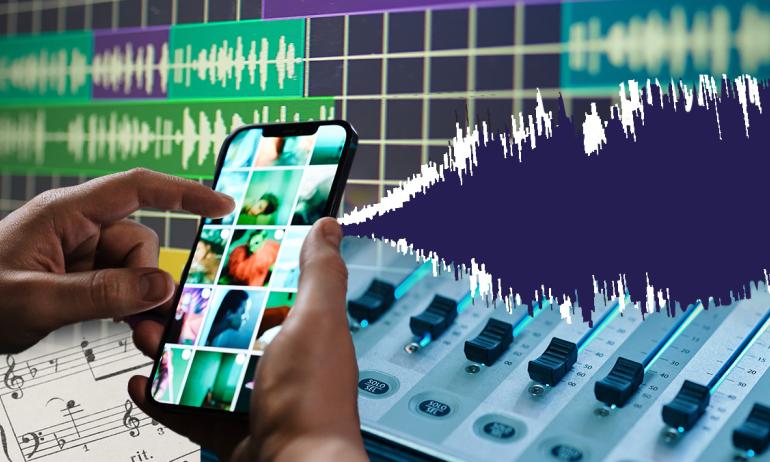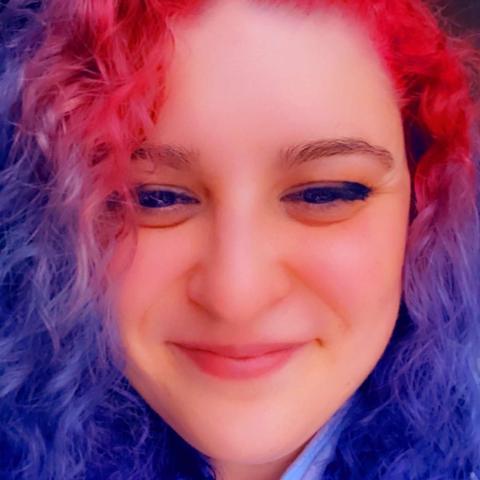Coda: Personal Growth and Free Improvisation
Improvisers know that there are other problems to sort out besides technical issues such as which notes "work" on particular chord changes in the practice of their craft. It has been well documented that there is a shared knowledge, even a common language among improvising jazz musicians. The attempt to codify these techniques and practices into teaching methodology is not new, although new perspectives on the art are now being written that musicians are wishing were available to them years ago.
While some facets of improvisation can be understood, others are less tangible or apparently defy explanation. The implication that improvisation is solely extemporaneous, unprepared, off-the-cuff playing has been clearly challenged in the last half of this century. We know, accept, and appreciate (perhaps for the first time in music history) that a lot of work, preparation, commitment, skill and training must take place before an artist can speak to us through improvised music in a seemingly effortless way.
Although many players and teachers are reluctant or feel ill-equipped to discuss it, those "other aspects" of improvisation, which seem less tangible, are emerging as issues worthy of our attention. In his book, Effortless Mastery, pianist/author Kenny Werner points to a number of problems confronting improvising musicians that do not revolve around issues of technique or theory. They are more psychological or process-oriented in nature.
Two things are clear. First, people, in general, need to communicate about and better understand their emotions and feelings--this is our path toward personal growth and healthy development. Second, emotional resources and good communication skills are essential tools for the improvising artist. For musicians, it is safe to say that the ability to communicate effectively and to express emotions, or truly play from the heart, can be learned--which means it can be taught.
"Free" improvisation is an excellent musical and educational environment in which to tackle these self-development issues. In my experience, improvising in this context has been a very valuable tool. Playing from silence and filling that space carefully reveals much about the person doing it. The intense listening required to react to one another and develop musical ideas, while very taxing, can be a very rewarding educational experience. Free playing ensembles or workshops serve a myriad of purposes under the guidance of an observant educator.
Free improvisation takes the experience of playing music out of the historical context of a style-based study that ordinarily is an integral part of any serious musician's development. Students can more readily experiment with the "playing" aspect of music making. They begin to find their own voices while they learn to interact and listen closely to each other.
The onus to create falls completely on the student. No rules, no charts, no wrong notes, no restrictions (at first). Faced with so many options and all this freedom, many musicians don't know where to start. Many feel daunted by the task and are reluctant to try because, perhaps for the first time, they are responsible for creating everything they play. Eventually, some students begin to show musical leadership qualities in their interaction with the group.
Free playing can also be seen as fertile soil in which very interesting compositional ideas arise--students can record the events and transcribe ideas that worked for them musically. These can provide vehicles for future, more refined improvisations or even sections of compositions.
New approaches to playing an instrument are discovered. One drummer, in trying to mimic a vocalist, produced incredible sounds by bowing the sides of his cymbals with a cellist's bow.
The exploration of alternative organizational elements in music is explored. Dynamics, articulation, intonation, form, tone color and timbre, even emotion can be used as boundaries or points of departure for improvisation.
One of the most valuable lessons of free playing is often the realization that, in some ways, we fear silence--certainly in the context of improvisation. Many do not understand it as a musical contribution and so do not practice listening to it or performing it. Editing decisions are constant and students develop a sense of balance between playing and resting.
As well, there are practical outlets for teaching, playing, and healing with free improvisation. People from other walks of life are interested in the art of improvising and the principles that can be drawn from it and applied to their fields.
Big business has made progressive strides in this area with applications in knowledge management and organizational learning. Artists are hired as clinicians to share this knowledge with corporations interested in improving the working environment and flow of information and knowledge within their company.
Progressive filmmakers such as David Lynch utilize live improvised music as motivation and environmental stimulus during filming. Other film scores are completely improvised by musicians reacting to the film--much like the theater organists in the silent film days. Improvisational dance companies perform with live musicians.
Music therapists are making very important contributions to the healing arts. People's lives are being affected daily through the practice and application of improvisation methods that are taught in that discipline.
As the art of improvising evolves, our educational view of it must broaden. By teaching students to attach value to thoughtful interaction with each other, they are also learning to play from other motivational sources besides their own egos. Putting students in contact with their emotional resources allows them to gain an accurate and realistic picture of where they are now, so that they can move forward in healthy ways. They bring all this knowledge of themselves into every other musical and learning situation.
Mitch Haupers is a guitarist, clinician, and music publisher. In addition to his work at Berklee, he has taught graduate improvisation groups at New England Conservatory of Music. He leads Rules of Air, a spontaneous composition ensemble and can be reached via e-mail at <mhaupers@berklee.edu>.



